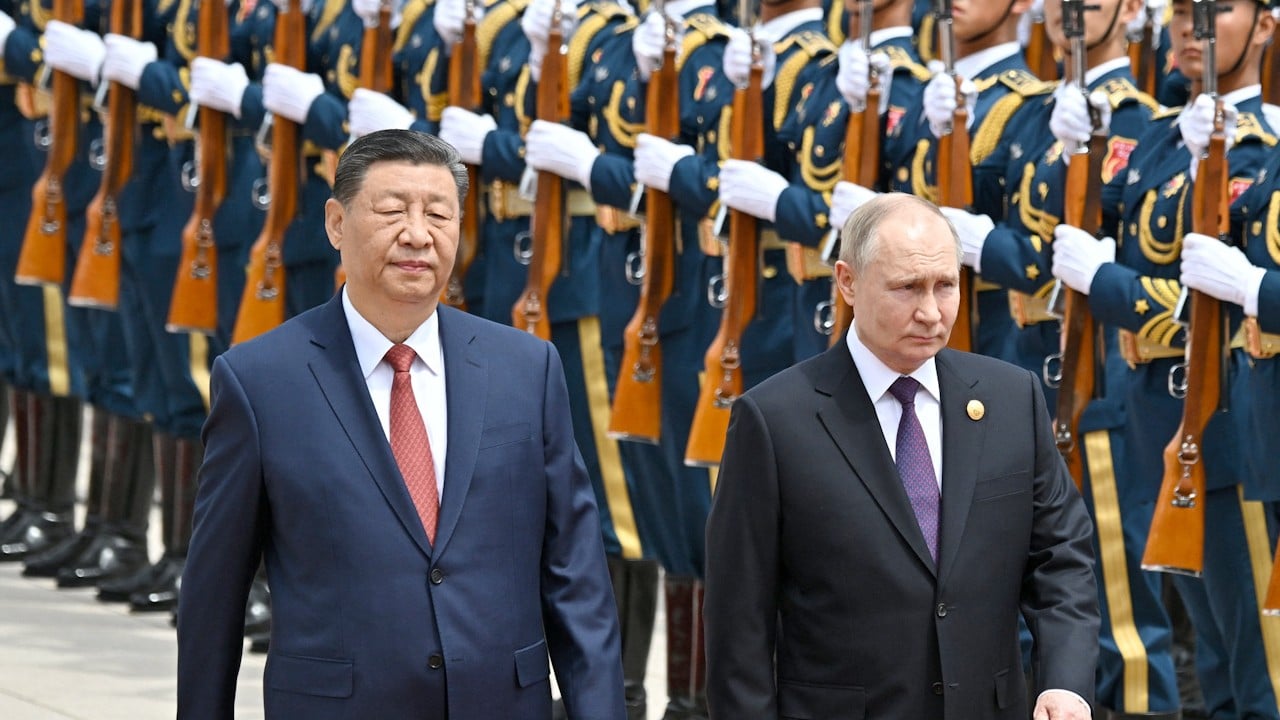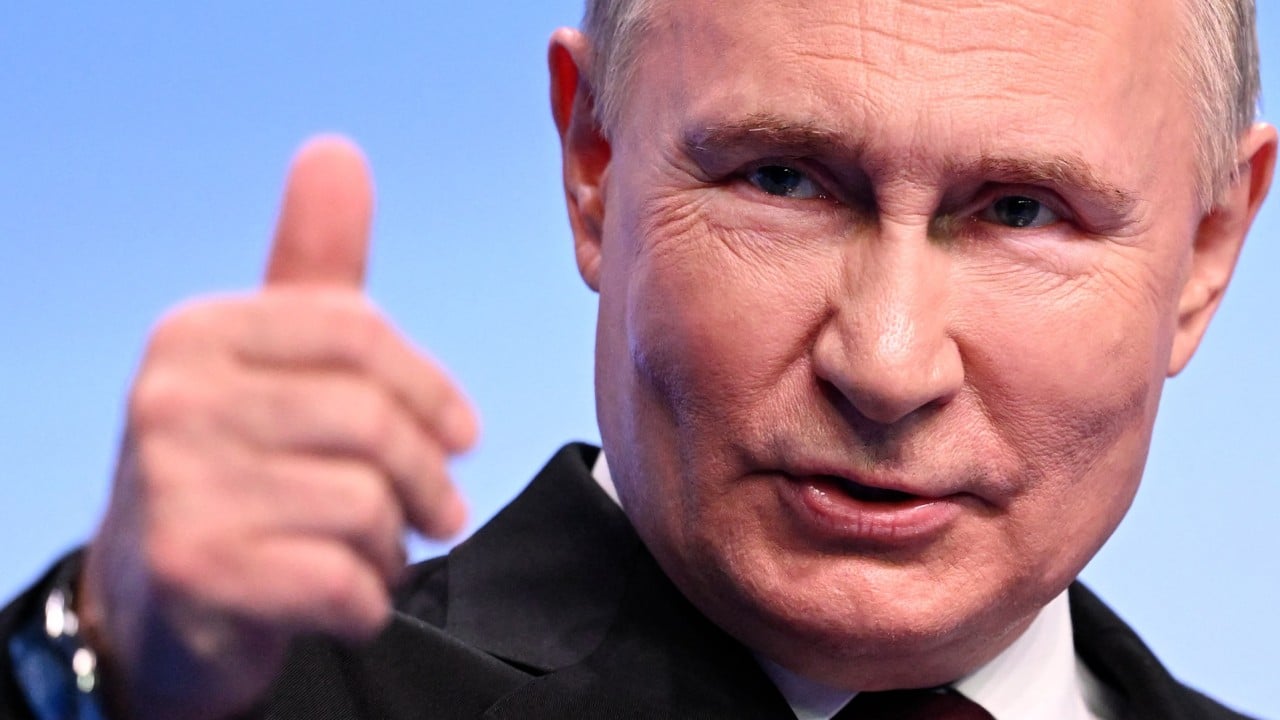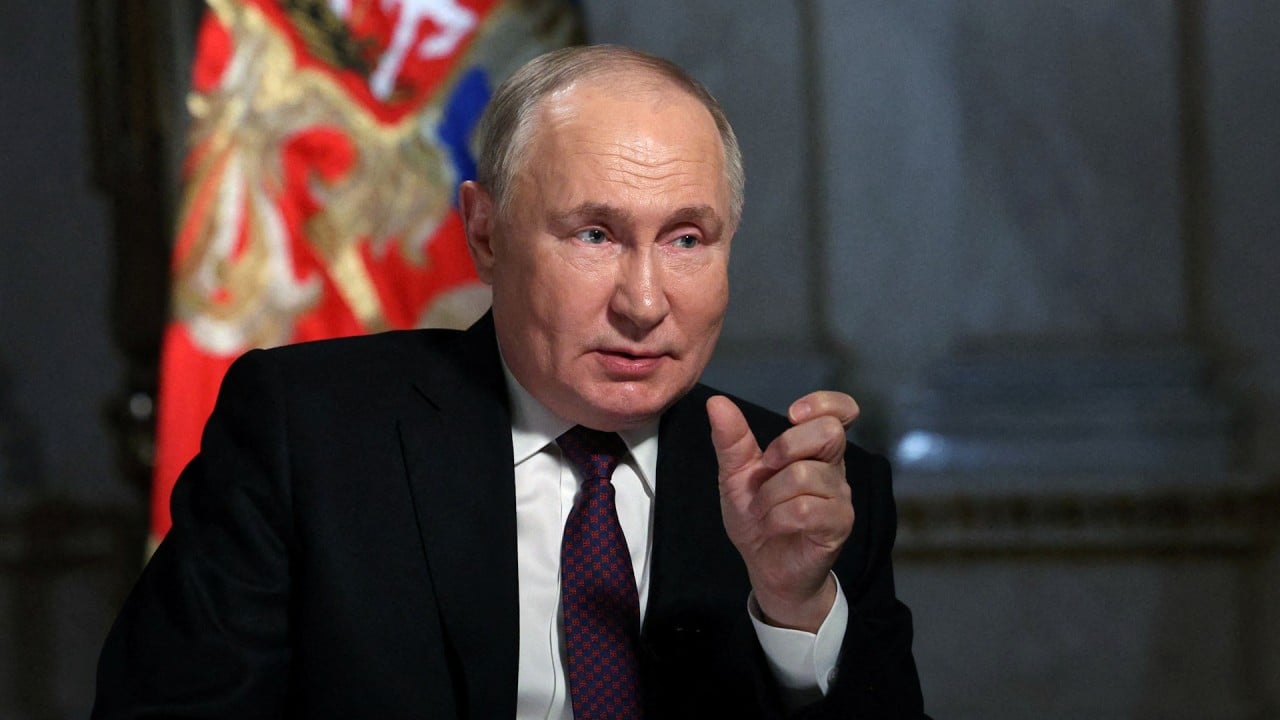“The United States still thinks in terms of the Cold War and is guided by the logic of bloc confrontation, putting the security of ‘narrow groups’ above regional security and stability, which creates a security threat for all countries in the region. The US must abandon this behaviour,” the statement said.
The world was a multipolar one and resources and opportunities should be redistributed for the emerging markets and developing countries.
“As independent forces in the process of building a multipolar world, China and Russia will fully exploit the potential of their relations, promote the realisation of a multipolar world and the democratisation of international relations in an equitable and orderly manner, and unite their efforts to build a just and rational multipolar world.”
They described the relationship between the two nations as having “transcended the military-political alliance model of the Cold War era” and as being “at the best level in history”.
Mounting a strong display of solidarity between the world’s two biggest non-Western powers, Xi and Putin said China and Russia were “determined to defend their legitimate rights and interests, and resist any attempts to hinder the normal development of bilateral ties, interfere in the internal affairs of the two states, or limit the economic, technological or foreign policy potential” between the two countries.
In all, the statement ran to more than 12,000 characters in Chinese.
There are other worrying signs for Moscow.
China’s shipments to Russia have eased for the first time in two years, dropping by nearly 16 per cent year on year in March and 13.5 per cent in April amid threats of secondary US sanctions against Chinese banks and companies helping the Russian war effort.
Addressing the war, the two countries agreed on Thursday to “steadily resolve the Ukraine crisis” but they also stressed that “security interests and concerns of every country must be considered”.
China supported “the efforts of the Russian side to ensure security and stability, national development and prosperity, sovereignty and territorial integrity”, and opposed outside interference in Russia’s internal affairs.
Meanwhile, Russia acknowledged China’s “objective and unbiased position on the Ukrainian issue”.
More broadly, the two countries reaffirmed joint efforts to push for stronger ties from politics to the military, to trade and the Arctic.
They agreed to “work closely together to overcome external challenges and unfavourable factors, improve the efficiency of cooperation between the two sides, and achieve stable and high-quality development of cooperation”.
The statement capped a day that began with a warm welcome for the Russian leader.
After landing in Beijing at 4am, Putin was greeted by State Councillor Shen Yiqin and a military honour guard at the airport, and his motorcade was escorted by no fewer than 21 security motorbikes.
Before heading inside the Great Hall of the People for their talks, Putin was greeted with great pomp.
A military band played “Midnight in Moscow” – perhaps the best known Soviet Russian song in China – as the two leaders reviewed a military honour guard.
In addition to filling his new cabinet with officials well-versed in working with China, Putin has also brought a top-level delegation with him to Beijing, including newly appointed Defence Minister Andrey Belousov, security council secretary Sergei Shoigu and Yury Ushakov, an aide to Putin in charge of foreign policy. Finance Minister Anton Siluanov and central bank governor Elvira Nabiullina were also in the delegation.
Xi, meanwhile, was joined by another two members of the all-powerful Politburo Standing Committee – Cai Qi, his chief of staff, and Vice-Premier Ding Xuexiang. Vice-Premier He Lifeng, who is in charge of the financial system and Zhang Guoqing, another vice-premier who oversees the country’s manufacturing sector, also took part in the small-circle meeting with Putin.




